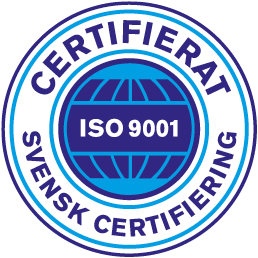Insights from Our ESG Group: Investing in Responsibility for a Better Future
Sustainability is an essential aspect of modern business practices, and companies that prioritize environmental, social, and governance (ESG) considerations are increasingly viewed as leaders in their fields. At Roima, we believe that taking a responsible approach to business is not only good for the planet and society, but it’s also essential for our company’s long-term success.
In this blog post, we’ll hear directly from Simo Malinen, a member of Roima’s ESG group, as he shares his insights on what ESG means to Roima, the impact it has on our business and stakeholders, and how Roima is taking a proactive approach to sustainable business practices.
What does ESG mean to you, and why is it important for you?
– For me, ESG means responsibility. Traditionally corporations would rarely have a dire need to actually caring for things around them or even for their own employees since often that cuts into profits. The environment is one of the classic things’ corporations have been exploiting for profit, and still do. Socially, the exploitation of workers through unethical labor practices is not far behind in that either. Most often it is the governance of said corporations that should be the ones to take responsibility for how the corporation is acting. Often, they do not, or they might even be actively hiding it through silencing whistleblowers or corruption. Luckily, regulation is catching up on many of these aspects, but they are the bare minimum for any company, and meeting them can hardly be considered being active in taking Corporate Social Responsibility or improving ESG.
Nowadays, however, ESG should not be considered a burden on profits, but an investment instead! Trying to be responsible as a company is not something out of the ordinary anymore. Instead, we should strive to being the most responsible company in our field. Responsibility breeds responsibility: Potential customers and other stakeholders who want to be responsible as well, are more likely to select a partner that also is responsible. Furthermore, if we beat the advancement of regulation in this aspect, we never have to scramble to meet them. Having to make changes to fit regulations on a tight schedule is more expensive than gradually over time.
What ESG area or aspect especially raises your interest?
– The “Social” aspect of ESG is most interesting for me, mostly because I feel that that is where Roima as a company can make the most significant impact both internally and in our community. It also has the most direct effect on our profitability. As a software company, our people are our most valuable resource, so things like Employee well-being, and training and development are important investments for our future. Employee retention through making sure that our employees are satisfied with what they are doing, fair compensation, and taking care of visibility to career paths as well as work-life balance makes sure our valuable people don’t leave the company or worst of all burn out completely.
Community engagement and charity are another big part where we as a company could make an impact: We already have taken part in charity campaigns for many past Christmases, but we could maybe think of ways on how we can help the communities around us even more.
Taking Social responsibility seriously means that we will need to extend to expecting responsibility from our partners and subsidiaries as well. It could even extend to things like customer selection, if we choose to supply our services to knowingly unethical companies or locations, can we be considered truly ethical either? We would have to consider how that impacts how we look to other potential or existing customers, who also have the need to only work with ethical partners.
Have you had discussions about ESG topics with the customers or other stakeholders of Roima?
– So far, ESG has not been a big part of any conversation I’ve had with customers or other stakeholders. They have been a frequent part of standard RFx questionnaires, “Supplier agrees to follow ethical labor practices” etc. I’m expecting this to change in the future, though, as more companies make sustainable business part of their identity.
Sustainability is an essential aspect of modern business practices, and companies that prioritize environmental, social, and governance (ESG) considerations are increasingly viewed as leaders in their fields. At Roima, we believe that taking a responsible approach to business is not only good for the planet and society, but it’s also essential for our company’s long-term success.
We are happy to have an ESG group that is enthusiastic about having a positive influence because we think that by working together, we can create a better future for everyone.











